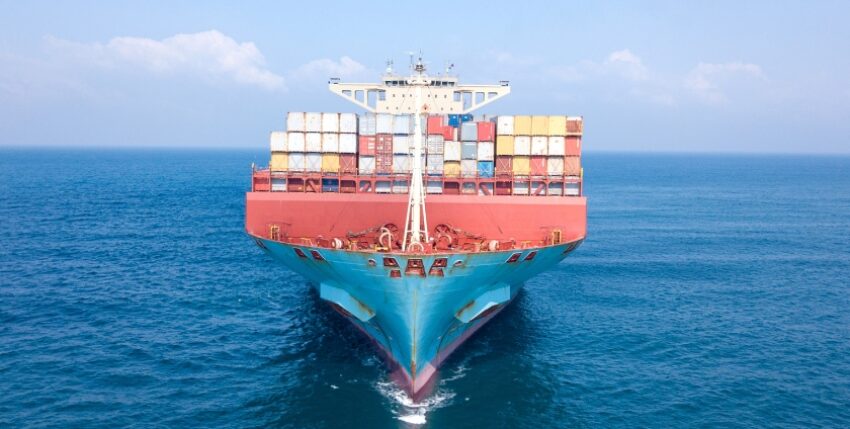Can you imagine going to work every day, on Saturdays and Sundays, seven days a week, for nine years in a row without a break and without pay? It's hard to imagine that this is exactly what happened to the Syrian ship's engineer Abdul Nasser Saleh against his will. The man had been working permanently on board the Tanzania-flagged ship Al Maha for 12 years since 2012 and had been repeatedly stalled and even threatened by his Saudi Arabian ship owners over the years due to a lack of pay, If he were to leave the ship, all wage claims would be forfeited. The ship owners and the responsible flag state of Tanzania have remained silent to this day and ignored existing salary claims that have been initiated for Saleh and other crew members. Saleh's wage claims amount to 178,000 US dollars to date, which corresponds to nine years' work.
It is sad that such a case of modern slavery is still occurring in 2024, despite valid UN conventions on safe working and living at sea, and is by no means an isolated case. How can this even be possible?
One reason for this is that a few countries have not signed and ratified the Marine Labour Convention, which came into force in 2013. However, as of 2025, with 108 ratified states, 96.6% of global merchant ship tonnage is subject to the Maritime Labour Convention, which obliges these states under international law to meet minimum requirements in terms of working conditions, medical care and accommodation on board. Tanzania has also ratified the Maritime Labour Convention and is therefore responsible for enforcing and complying with it with regard to ships flying its flag.
The problem is hidden in the Flags of Convenience (FoC) system. These are also known as open registers or "flags of convenience" and enable foreign shipowners to register their ships and thus save on labour, social security and other costs. Normally, the Convention on the Law of the Sea provides for a so-called "genuine link" between the flag state and the shipowner. Simply put, the ship of a German shipping company must also fly the German flag and German laws apply in all respects. Needless to say, this is hardly ever applied in practice. Almost all shipping companies worldwide flag their ships in countries with open ship registers, which stipulate lower wages and lower labour safety standards etc. in order to save money. This is legally possible due to Article 10 of the Convention on the Law of the Sea, which defines the "genuine link" as a given as soon as a subsidiary of the shipowner has a registered office in the flag state. For this reason, there are probably also many letterboxes in Tanzania.
Of course, not all of these Flags of Convenience have a bad reputation and not all ship operators who flag out their ships treat their crews abominably. However, it cannot be denied that there are abuses on many ships and that many flag states and operators try to get out of the affair as soon as legal accusations are made. In some cases, the letterbox companies are simply dissolved and entire ships and their crews are left at sea, in roadsteads or in harbours without pay, without food and without any assistance. Flag states such as Tanzania, which are known for hardly enforcing the law on their ships, close their eyes and fail to fulfil their responsibilities. This is not least due to the fact that the economic benefits for such states - for example through income from the registration of ships - are greater than the political pressure to ensure better working conditions. Such conflicts are sometimes carried out in protracted processes over years and decades on the shoulders of the seafarers and there are hardly any opportunities to hold them accountable.
The International Transport Workers' Federation (ITF), a global trade union organisation and leading body representing the rights of more than 1 million seafarers, is committed to uncovering and combating these abuses. But the figures speak an alarming language: the number of seafarers left behind is increasing dramatically every year. In 2024, a sad record was set with over 3,100 cases. Ships without flags are being picked up more and more frequently, their crews left to fend for themselves. This is a form of modern slavery that continues unchecked in the world's most important economic sector.
As long as the Flags of Convenience system is not fundamentally revised, it will remain an easy game for unscrupulous shipowners to evade their responsibilities. The lack of enforcement of international conventions and the indifference of responsible flag states continue to provide a breeding ground for the exploitation of seafarers. Stopping this trend requires stricter control of flag states and tough sanctions against shipping companies that abandon their crews. Port states must also take on a stronger role and consistently arrest ships with conspicuous abuses. Only if international agreements not only exist, but are also effectively enforced, can a sustainable improvement in working conditions at sea be achieved.
The global economy is largely dependent on the labour of seafarers - and yet they enjoy hardly any protection. It is up to the international community to take strong action to counteract this abuse. Because as long as economic interests are prioritised over human rights, the fate of workers like Abdul Nasser Saleh will remain just one of many tragic examples of a system that urgently needs to be reformed.
Lieutenant Commander Felicitas van Daake is a member of the Naval Technology School.
Felicitas von Daake







